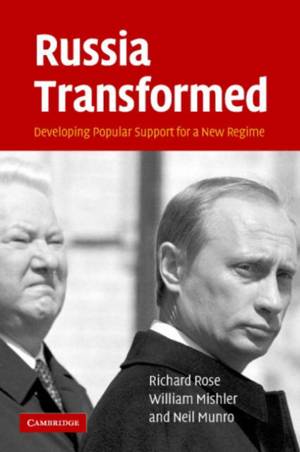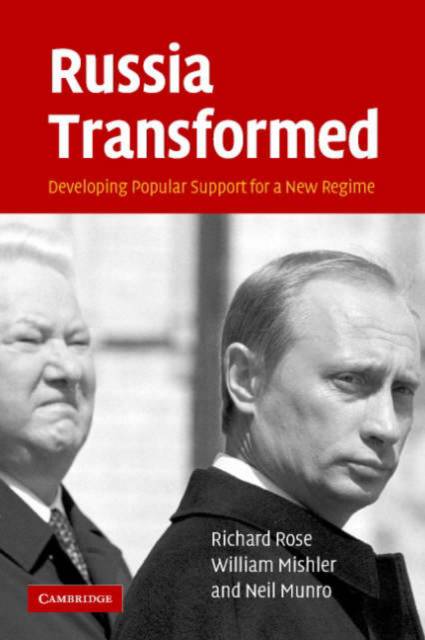
- Afhalen na 1 uur in een winkel met voorraad
- Gratis thuislevering in België vanaf € 30
- Ruim aanbod met 7 miljoen producten
- Afhalen na 1 uur in een winkel met voorraad
- Gratis thuislevering in België vanaf € 30
- Ruim aanbod met 7 miljoen producten
Zoeken
Russia Transformed
Developing Popular Support for a New Regime
Richard Rose, William Mishler, Neil Munro
Paperback | Engels
€ 64,95
+ 129 punten
Uitvoering
Omschrijving
Since the fall of communism Russia has undergone a treble transformation of its political, social and economic system. The government is an autocracy in which the Kremlin manages elections and administers the law to suit its own ends. It does not provide the democracy that most citizens desire. Given a contradiction between what Russians want and what they get, do they support their government and, if so, why? Using the New Russia Barometer - a unique set of public opinion surveys from 1992 to 2005 - this book shows that it is the passage of time that has been most important in developing support for the new regime. Although there remains great dissatisfaction with the regime's corruption, it has become accepted as a lesser evil to alternatives. The government appears stable today, but will be challenged by constitutional term limits forcing President Putin to leave office in 2008.
Specificaties
Betrokkenen
- Auteur(s):
- Uitgeverij:
Inhoud
- Aantal bladzijden:
- 238
- Taal:
- Engels
Eigenschappen
- Productcode (EAN):
- 9780521692410
- Verschijningsdatum:
- 23/11/2006
- Uitvoering:
- Paperback
- Formaat:
- Trade paperback (VS)
- Afmetingen:
- 161 mm x 226 mm
- Gewicht:
- 385 g

Alleen bij Standaard Boekhandel
+ 129 punten op je klantenkaart van Standaard Boekhandel
Beoordelingen
We publiceren alleen reviews die voldoen aan de voorwaarden voor reviews. Bekijk onze voorwaarden voor reviews.








